The China community is eagerly awaiting the German government’s new China strategy, of which initial details have already been leaked. Speaking with Table.Media, Foreign Minister Annalena Baerbock now defends her ministry’s ideas and goals. Germany has “experienced what can happen if we make ourselves massively dependent on a country that does not share our values, that competes with our democracy as an autocratic regime,” Baerbock said. That is why diversification of the economy is necessary, she added. The Green politician praised the German medium-sized businesses in this context – and criticized the Dax corporations.
In the meantime, China faces a potential second COVID-19 wave this month. And this time it is likely to hit rural regions, where people may be even more vulnerable to the virus than in the developed metropolises due to poor health care. The reason: Chinese New Year on January 22 is approaching, and traditionally millions and millions travel to their families in their home villages. The festival could turn into a tragic super-spreader event, as our team of authors in Beijing analyzes.
Somewhat in the shadow of the Chinese EV boom, China also advanced the development of electric buses with targeted subsidy policies. Almost every electric bus in the world now rolls on China’s roads. This makes China the main driver of the global electrification of bus fleets, as Nico Beckert analyzes. One problem the People’s Republic still has to solve, however, is the climate impact of electric vehicles: As long as coal dominates the electricity mix, carbon emission reductions are well below potential. Nevertheless, other countries can learn a few lessons from China’s electric bus successes.
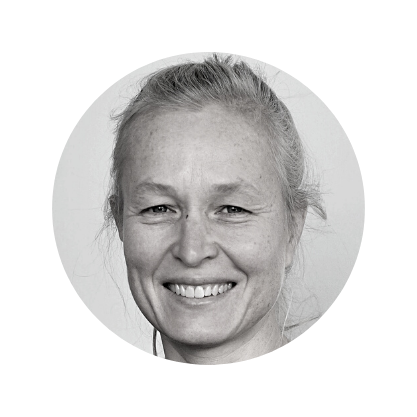
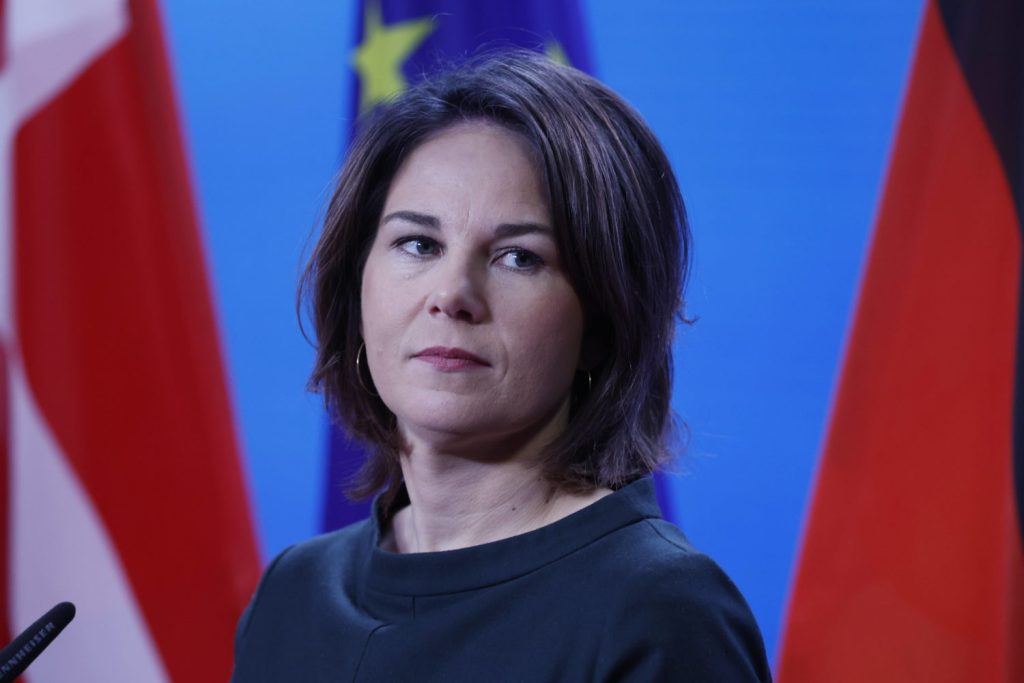
There is growing concern within the Social Democratic Party that the harsher tone – set by the Foreign Office and the Ministry of Economics – could seriously damage relations with China and jeopardize prosperity. Can you sympathize with this concern?
In a fully interconnected world, you cannot decouple yourself from any region, and certainly not from one of the largest economies. That is why the China strategy is not a decoupling strategy. But we have seen what can happen when we become massively dependent on a country that does not share our values, and that competes with our democracy as an autocratic regime. It makes us vulnerable, and precaution is the best protection. I consider it our responsibility as a government to protect ourselves from this by systematically positioning ourselves and the economy as best we can in foreign, digital, infrastructure and energy policy to face global challenges.
Do you equate Russia and China?
No. But we have seen that China has moved further and further away in recent years, not only from our democratic values but also from the rule of law and the rules of fair competition. That is why it is in our very own economic interest not to become as dependent on China as we have been on Russia. We cannot again act so irresponsibly shortsighted according to the motto “it won’t be that bad” – in the case of Russia, we now pay dearly for this with countless billions of taxpayers’ money.
But this will not be without consequences. How do you explain this to companies and employees who fear for their business and jobs?
I generally do not have to explain much. Many medium-sized and family-owned businesses in particular are practicing smart risk management in their China business, scaling back investments in China due to the tougher pace in recent years and diversifying in the Indo-Pacific. With some DAX companies, one gets the impression that they are simply ignoring the economic risks, but also the long-term interests of their company, because only the next five years count for the bonuses of the executive boards. For a responsible government, however, the focus must be on the national economic interest.
In that sense, the BDI’s (Federation of German Industries) 2019 policy paper was a turning point for many, and the wish to diversify has become even stronger in the wake of the Russian war. That is why Robert Habeck and I have jointly made proposals for security-conscious foreign trade funding. A foreign policy, and even more so a foreign trade policy, that threatens Germany as a business location and thus our prosperity and social cohesion would not only be short-sighted, it would be a security risk.
Has China become an adversary?
No. It would be a declaration of diplomatic bankruptcy if we did not at least attempt to maintain constructive relations with all countries. The core of our security strategy is that we want to cooperate and collaborate with other countries in as many fields as possible – and yet we must at the same time be able to act sovereignly and independently if others suddenly start acting to our detriment. That’s what strategic sovereignty for Europe looks like to me. This does not only concern infrastructure or semiconductors, but also important pharmaceuticals.
And it affects not only us but also our neighbors. If I remain silent out of concern for bad relations with autocrats in the event of serious violations – then I also damage the many other relationships with all those countries that fall victim to these rule violations and are left alone with their concerns. This is exactly what we experienced with Russia, and I don’t want to see it repeated in the Indo-Pacific.
The interview with Annalena Baerbock is a translated excerpt from a longer conversation with our German Berlin.Table. Other key topics included the Ukraine war, diplomacy with Iran and arms deals with Saudi Arabia. Read the full German interview here.
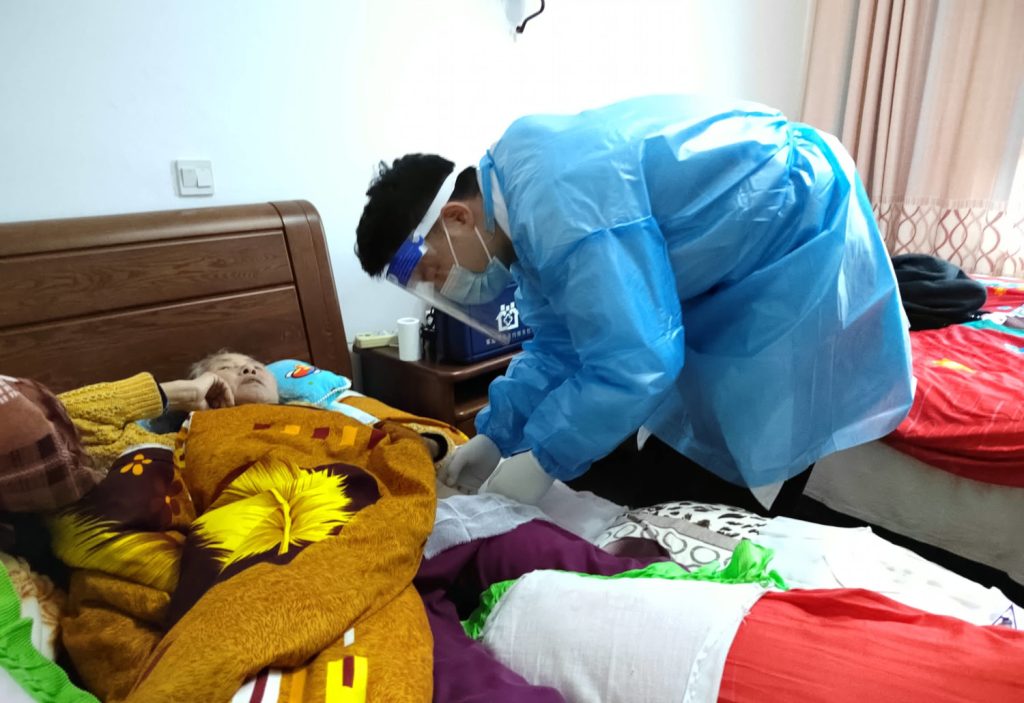
Life returned to the streets of Beijing and other major cities over the New Year holiday. Hospitals and crematoriums continue to work at full capacity. But many people have now recovered from the infection and are going about their daily lives once more. According to a primary assessment published in the Chinese journal Frontiers of Medicine, the wave has likely peaked in many mega-metropolises.
Still, infection numbers remain staggering: In Shanghai, more than two-thirds of residents may have contracted the virus since late November, according to official figures. The outbreak may have affected “70 percent of the population,” Chen Erzhen, Deputy Director of Ruijin Hospital, is quoted as saying, according to a People’s Daily blog. In Shanghai, infection rates are “20 to 30 times” higher than during the outbreak in spring 2022, Chen said. At that time, some 600,000 people had contracted the disease; authorities imposed an extremely harsh two-month lockdown.
According to the study, led by Shanghai biologist Chen Saijuan, numbers in Beijing, Shanghai and the central Chinese metropolis of Chongqing have already started to decline since late December.
Interestingly, the calculation suggests that the southern Chinese city of Guangzhou already passed the infection peak in late November – when zero-Covid was still officially in effect. The situation in Guangzhou seemed out of control at the time. Even according to official figures, there were hundreds of newly infected people every day. In reality, the number likely ranged in the hundreds of thousands or even millions.
The researchers’ findings coincide with statements by Wu Zunyou, Chief Epidemiologist of China’s Center for Disease Prevention. Wu said last week that Covid cases in Beijing, Tianjin, Hebei province, Chengdu and Chongqing had probably peaked.
However, according to Shanghai researchers, a much more dangerous wave is now imminent. After the virus has hit the medically best-equipped cities on the east coast and in the south, it is now heading for the more remote and less developed areas. When hundreds of millions of travelers set off for their hometowns around the Chinese New Year on January 22, it could act like an accelerant.
For example, in small and medium-sized cities in Sichuan, Shaanxi, Gansu and Qinghai provinces, the wave is expected to peak in mid-to-late January. Earlier dates are also possible depending on travel patterns, according to the researchers.
The scientists’ report also conceals a surprisingly clear criticism of the government. For example, it is “critical” that the infection incidence, including deaths, is insufficiently documented. The data is necessary to predict the future progress of the pandemic, they argue. But amid the massive Covid wave, the authorities stopped publishing daily infection figures; since then, there have been hardly any reliable figures on infection incidence.
The only data available are officially unconfirmed internal estimates. For example, according to notes from a Health Commission meeting in Beijing, 248 million people, or 18 percent of the population, are believed to have contracted COVID-19 in the first three weeks of December alone. London-based data firm Airfinity estimates the death toll at about 9,000 a day – up from 5,000 in December. Airfinity expects two peaks in January and March, with 3.7 or even 4.2 million new daily infections.
Meanwhile, virologists fear that the massive Covid wave in China could breed new virus mutations. The World Health Organization (WHO) also recently urged China to provide more data on the Covid situation to enable a better global assessment of whether and which more dangerous variants are circulating.
The EU recently offered China free vaccine doses, according to a Financial Times report; Taiwan and others have also repeatedly offered free aid. But so far, Beijing has not responded. So far, locals are only allowed to receive domestic vaccines – which are considerably less effective than mRNA vaccines from Biontech or Moderna.
In contrast, Beijing strongly criticizes the fact that several countries plan to introduce mandatory PCR testing for travelers from the People’s Republic due to the high infection rates in China. Restrictions imposed on Chinese travelers “lack any scientific basis,” a spokeswoman for the Foreign Ministry in Beijing said on Tuesday and threatened to impose countermeasures. For almost three years, China hardly allowed anyone into the country, and only under horrendous conditions, including long mandatory quarantine and daily PCR tests.
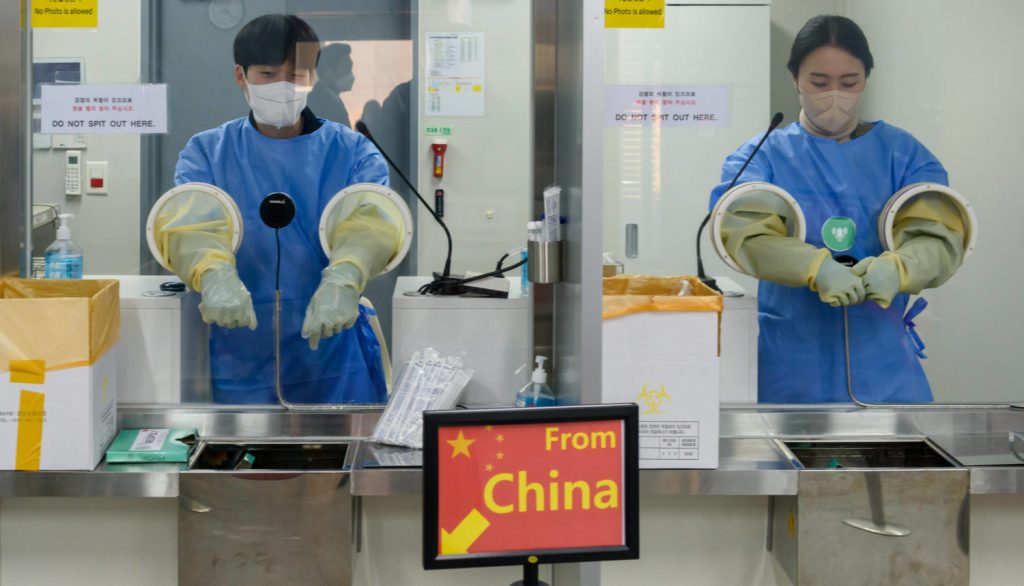
On Tuesday afternoon, the EU Health Security Committee (HSC) discussed how to handle China’s Covid wave. The expert panel discussed measures such as testing of Airplane wastewater inbound from China for the Coronavirus, possible entry restrictions or recommendations for passengers and airport staff, the EU Commission announced on Twitter. Belgium is already analyzing such wastewater in a pilot project. Joern Petring, Felix Lee
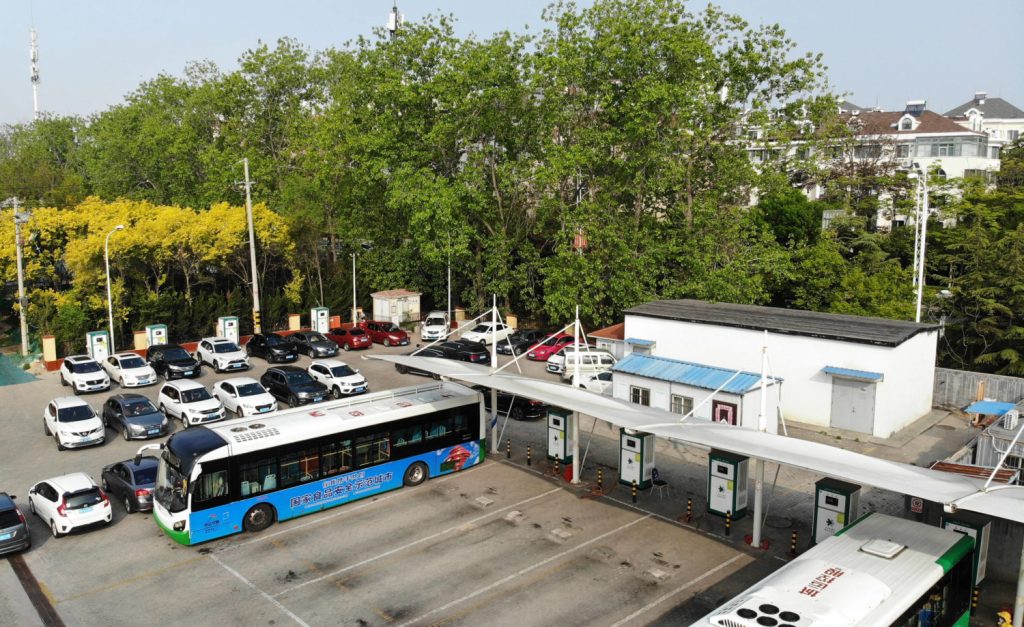
Not only electric cars are booming in China. The number of electric buses is also growing steadily, fueled by a targeted government policy involving subsidies, regulations, infrastructure development, pilot programs, and an active industrial policy.
China’s zero-emission bus fleet consists of around 704,000 vehicles (as of mid-2021), according to a study by BloombergNEF – an increase of 19 percent compared to 2020. A number of cities including Shenzhen, Tianjin and Zhengzhou have already electrified their entire bus fleets. By the end of 2020, more than half of Chinese buses were purely battery-powered.
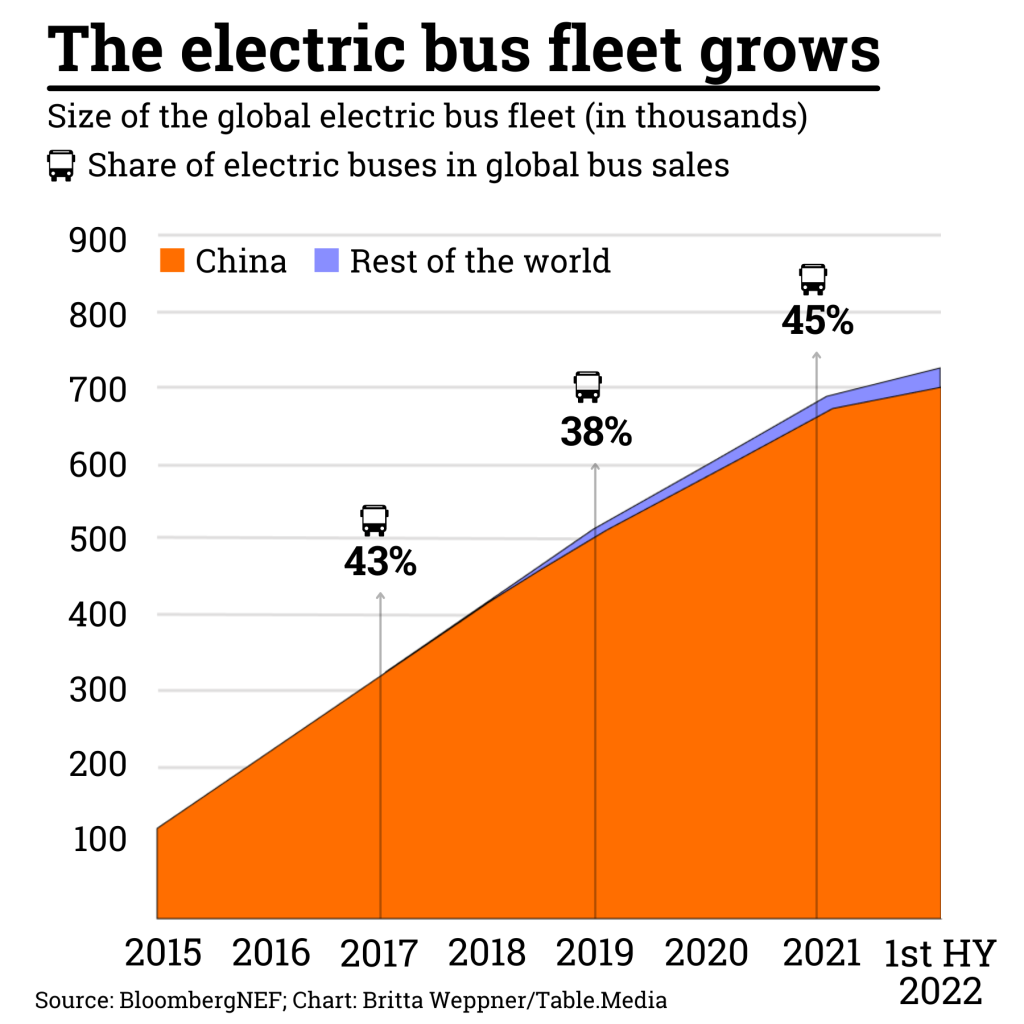
China’s e-bus success is thus the most important driver of global bus fleet electrification. A whopping 97 percent of global electric buses are on China’s roads.
Worldwide, the share of electric buses in new sales still stood at a meager two percent in 2013. In 2021, almost every second bus sold was electric (45 percent). Their share of the global bus fleet has risen to 19 percent. The development of electric buses is one of the few rays of hope presented in the “State of Climate Action 2022” analysis by climate NGOs and think tanks.
Since 2009, China spurred development with subsidies at the national and local levels:
China’s government also subsidized electric buses – just like electric cars – to boost its own industry. In some cases, subsidies were linked to technical parameters such as energy consumption and battery range. The research and development of electric buses also received financial help. The Chinese company “Build your dreams” (BYD) is now the global market leader in electric buses and has also been producing in Europe since 2017. By now, China has reduced the subsidies; the market has begun to function well without subsidies.
Many Chinese cities have also provided the necessary charging infrastructure. Bus depots and bus stops have been fitted with charging points.
Environmental regulations have also contributed to the success of electric buses. To reduce urban air pollution, the number of diesel vehicles and subsidies for internal combustion buses have been reduced. Since 2015, the number of conventional buses has fallen by an average of ten percent per year, according to GIZ.
Sales are going in the right direction to ensure that the sector contributes to the 1.5-degree target. But they need to be further stepped up. It also matters where the electricity for the buses comes from. If they are powered by 100 percent renewables, in the best case “electric buses emit only 15 percent of the emissions of a diesel bus,” according to a study commissioned by the city of Zurich. Even the buses outfitted with the largest batteries emit only 25 percent of the greenhouse gases of comparable diesel buses over their entire life cycle.
IIn China, however, the climate benefit is much lower. Coal-fired power still dominates the electricity mix too. EVs manufactured in China in 2022, calculated over their life cycle and a distance of 250,000 kilometers, will save 27 percent in carbon emissions compared to internal combustion vehicles, according to the think tank BloombergNEF. The numbers will hardly be better for electric buses. However, the expansion of renewables in the People’s Republic will greatly improve the emission footprint of electric buses, according to BNEF analysts.
The EU member states have agreed on minimum targets for clean buses in 2021. Depending on the member state and economic strength, between August 2021 and 2025, 24 and 45 percent of all newly procured public buses must be “clean” – half of which must be emission-free. Vehicles that run on gas or synthetic fuels are also considered clean buses. Countries such as France and the Netherlands have set themselves more ambitious targets. They only want to buy zero-emissions buses after 2025.
Some lessons can be drawn from China’s electric bus success:
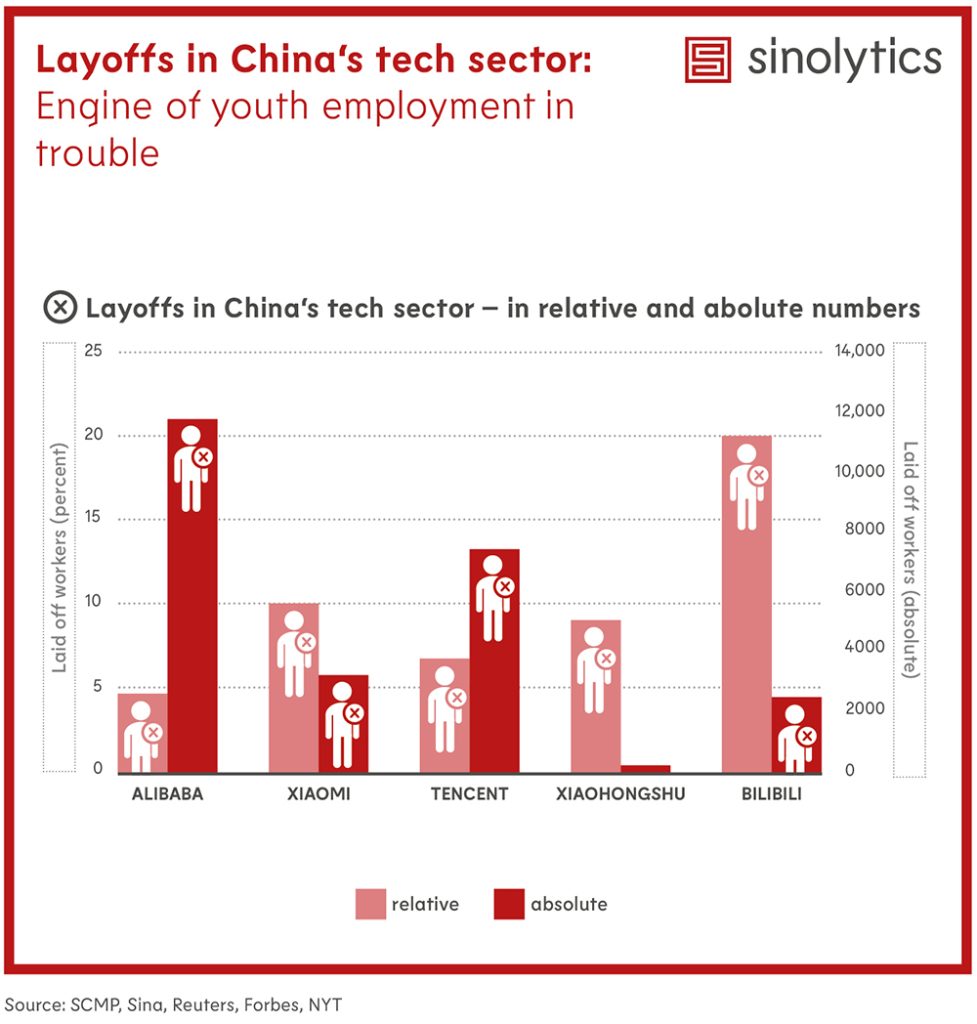
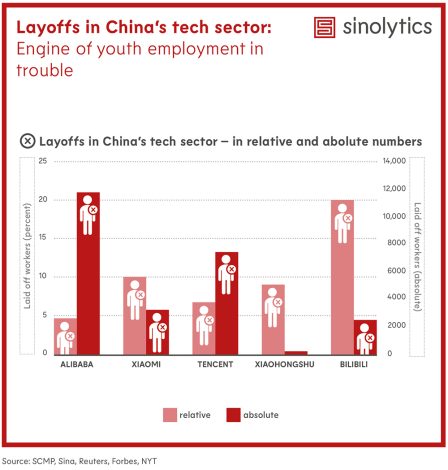
Sinolytics is a European research-based consultancy entirely focused on China. It advises European companies on their strategic orientation and concrete business activities in the People’s Republic.
China’s third aircraft carrier “Fujian” is scheduled to undergo its first maritime tests in 2023. “In the new year, we must take hold of all the work centered on the sea trials,” the carrier’s vice-captain Qian Shumin said in a video address released Tuesday. The ship, which launched in June 2022, is currently undergoing further outfitting at the Jiangnan Shipyard near Shanghai. In September, the Fujian launched its first berthing tests to shorten the time to completion in parallel, according to a report by the South China Morning Post. Such berthing trials test a ship’s systems – how they work individually and together – from propulsion to mechanical equipment.
President Xi Jinping explicitly mentioned the launch of the Fujian in his New Year’s message, Qian stressed. As a member of the Fujian crew, he said, he felt very honored. The Fujian is a central part of the Chinese Navy’s ongoing modernization. It reportedly is similar to the newest US aircraft carrier, USS Gerald R. Ford, which is the only other carrier equipped with electromagnetic catapults for launching fighter jets.
Experts believe that the Fujian will have a regular presence in the Taiwan Strait once it enters service. Meanwhile, China’s first aircraft carrier “Liaoning” and its escort ships have been conducting exercises in the western Pacific since mid-December. A few days ago, the carrier was spotted near the US island territory of Guam. ck
Philippine President Ferdinand Marcos Jr. embarked on a three-day state visit to China on Tuesday. His government expects to sign 10 agreements with the People’s Republic, Marcos said in a speech before leaving for Beijing: “I will open a new chapter in our comprehensive, strategic cooperation with China.” Marcos Jr. added that he would expand relations with China in agriculture, energy, infrastructure and trade. These priorities were confirmed Tuesday by Beijing’s foreign office spokesman Wang Wenbin. Marcos Jr. will meet in Beijing with President Xi Jinping, among others.
Echoing the words of Marcos Jr., China is proposing to change the current status between the two countries from “strategic cooperation” to “comprehensive strategic partnership,” according to a report in the South China Morning Post, citing a source close to the government. It is still unclear what that might mean specifically. Beijing reportedly held out the prospect of 1.5 billion yuan (217.4 million US dollars) in grants to Manila.
But the talks with Xi are also expected to cover China’s actions in the South China Sea, according to a Philippine Foreign Ministry official, the newspaper reported. Marcos Jr. himself said he would discuss “security issues” with Xi, among other things, and seek to resolve them for “mutual benefit.” The Philippine Defense Department earlier ordered its military to increase its presence in the South China Sea. China has begun claiming land in several previously unoccupied areas – including the Eldad Reef in the northern part of the disputed Spratly Islands – according to reports by Bloomberg, citing Western officials. The Chinese Foreign Ministry has denied the report. ck
Hong Kong Cardinal Joseph Zen will be allowed to attend the funeral of Pope Emeritus Benedict XVI. The authorities allowed the 90-year-old to leave the country, his secretariat announced on Tuesday. To this end, Zen’s lawyers had requested the return of his Hong Kong passport in a non-public hearing at the West Kowloon court. The funeral of the former pontiff, who died at the age of 95, will take place Thursday in the Vatican.
As pope, Benedict XVI appointed the then Hong Kong archbishop a cardinal. Zen repeatedly criticized China. For example, he condemned the 2018 deal between the Vatican and the People’s Republic to appoint Catholic bishops in the country as a sellout of China’s underground church. In 2020, Zen fell into the clutches of the new National Security Law despite his status as a cardinal. In May 2022, Zen was arrested on suspicion of collaborating with foreign forces (China.Table reported). He and five other activists were fined in November. The official reason was that they had failed to register a now-defunct relief fund intended to support detained participants in the 2019 mass protests. ck
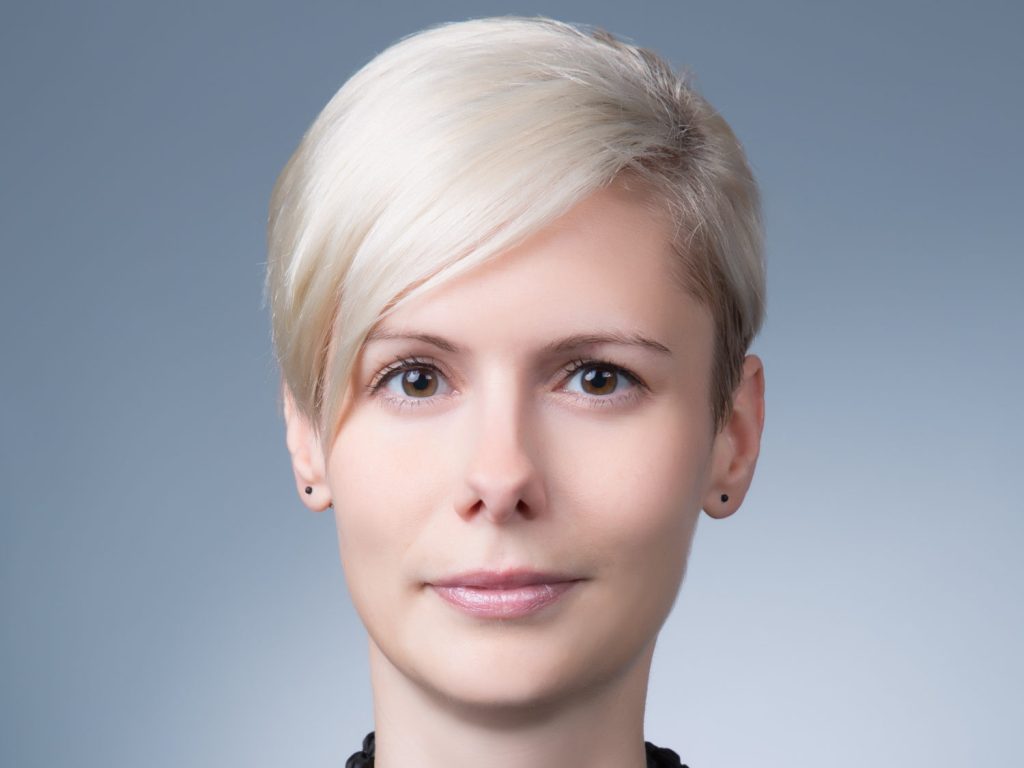
“For me, a world broke down in Shenzhen,” says Alicia Hennig when she thinks back to her time as a lecturer in China. In 2015, the business ethicist came to the local Harbin Institute of Technology for a teaching position. She brought with her many positive memories of previous internships in Shanghai and Jiangsu. After all, Hennig was inspired by the China of businesspeople and enablers.
But upon arriving in Shenzhen, the socialist top-down system and its bureaucracy put her off. Above all, the censorship gives her a hard time: Agreements with the university forbid her from speaking about topics such as Taiwan or the One China principle. To ensure that Hennig and her students adhere to these regulations, cameras and microphones are installed in the lecture halls. Fed up with harassment and taboos, Hennig resigned early in 2017.
Today, she holds an interim professorship in general business administration, controlling and environmental management at the Technical University of Dresden. One question, in particular, has stuck with her from her time in China: Is it right to work as a scientist in China and thus support the authoritarian system? “I found an answer for myself. But I can’t dictate to people how they should act themselves.”
Nevertheless, Hennig has a clear idea of where priorities should lie – and not only in academia but also for the many German companies that have come to China. Because in the face of “re-education camps” in Xinjiang and zero-Covid that has long been enforced with an iron fist, they would have to deal with the fact that their presence supports the authoritarian regime, Hennig believes. Especially given the fact that many large companies otherwise openly support human rights.
Hennig, therefore, urges German companies to diversify their supply chains. Away from China, back to Europe, is the slogan. Hennig thinks pressure from civil society could also provide an impetus. “Companies are not urged enough to take a public position,” she complains about the human rights violations in the country. She would also welcome support from politicians: Europe needs to create better conditions for companies to bring their production back to Europe.
Together with the Society for Threatened Peoples (GfbV) and other human rights NGOs, she authored a position paper. In it, the human rights activists call for a stronger focus on Xinjiang, Tibet and Hong Kong, as well as an upgrading of Taiwan. The paper is based on the German government’s announced China strategy, from which Hennig and her colleagues hope that investments from China will also be viewed more critically.
For Hennig, nothing less than Germany’s credibility is at stake here. The German government must live up to its values-based foreign policy, she demands. “Those who promote values must also stand up for values.” Jonathan Kaspar-Lehrer
Klaus Haas took up the post of Key Account Manager at AVL China in January. Headquartered in Graz, the mobility technology company operates subsidiaries in China in Shanghai, Tianjin and Beijing, as well as a software center in Chengdu. Until December, Haas served as Sales Manager at AVL Germany in Ingolstadt and Munich. His new place of work is Beijing.
Burak Kayan is the new project manager for lifecycle management at VW China. In the role, he will oversee the product lifecycle of new series and develop recycling strategies, for example for EV lithium-ion batteries. Kayan has worked for VW since 2020. He will remain in Wolfsburg for his new position.
Is something changing in your organization? Why not let us know at heads@table.media!

Festival of lights in Chinese: In Qianxi in the southwestern province of Guizhou, young women light a sky lantern. The so-called Kongming lantern is said to have been created almost 2000 years ago by the eponymous military leader. After its invention, it was mainly used as a means of communication. In Germany, these highly flammable flying objects have been banned since the 2000s.
The China community is eagerly awaiting the German government’s new China strategy, of which initial details have already been leaked. Speaking with Table.Media, Foreign Minister Annalena Baerbock now defends her ministry’s ideas and goals. Germany has “experienced what can happen if we make ourselves massively dependent on a country that does not share our values, that competes with our democracy as an autocratic regime,” Baerbock said. That is why diversification of the economy is necessary, she added. The Green politician praised the German medium-sized businesses in this context – and criticized the Dax corporations.
In the meantime, China faces a potential second COVID-19 wave this month. And this time it is likely to hit rural regions, where people may be even more vulnerable to the virus than in the developed metropolises due to poor health care. The reason: Chinese New Year on January 22 is approaching, and traditionally millions and millions travel to their families in their home villages. The festival could turn into a tragic super-spreader event, as our team of authors in Beijing analyzes.
Somewhat in the shadow of the Chinese EV boom, China also advanced the development of electric buses with targeted subsidy policies. Almost every electric bus in the world now rolls on China’s roads. This makes China the main driver of the global electrification of bus fleets, as Nico Beckert analyzes. One problem the People’s Republic still has to solve, however, is the climate impact of electric vehicles: As long as coal dominates the electricity mix, carbon emission reductions are well below potential. Nevertheless, other countries can learn a few lessons from China’s electric bus successes.


There is growing concern within the Social Democratic Party that the harsher tone – set by the Foreign Office and the Ministry of Economics – could seriously damage relations with China and jeopardize prosperity. Can you sympathize with this concern?
In a fully interconnected world, you cannot decouple yourself from any region, and certainly not from one of the largest economies. That is why the China strategy is not a decoupling strategy. But we have seen what can happen when we become massively dependent on a country that does not share our values, and that competes with our democracy as an autocratic regime. It makes us vulnerable, and precaution is the best protection. I consider it our responsibility as a government to protect ourselves from this by systematically positioning ourselves and the economy as best we can in foreign, digital, infrastructure and energy policy to face global challenges.
Do you equate Russia and China?
No. But we have seen that China has moved further and further away in recent years, not only from our democratic values but also from the rule of law and the rules of fair competition. That is why it is in our very own economic interest not to become as dependent on China as we have been on Russia. We cannot again act so irresponsibly shortsighted according to the motto “it won’t be that bad” – in the case of Russia, we now pay dearly for this with countless billions of taxpayers’ money.
But this will not be without consequences. How do you explain this to companies and employees who fear for their business and jobs?
I generally do not have to explain much. Many medium-sized and family-owned businesses in particular are practicing smart risk management in their China business, scaling back investments in China due to the tougher pace in recent years and diversifying in the Indo-Pacific. With some DAX companies, one gets the impression that they are simply ignoring the economic risks, but also the long-term interests of their company, because only the next five years count for the bonuses of the executive boards. For a responsible government, however, the focus must be on the national economic interest.
In that sense, the BDI’s (Federation of German Industries) 2019 policy paper was a turning point for many, and the wish to diversify has become even stronger in the wake of the Russian war. That is why Robert Habeck and I have jointly made proposals for security-conscious foreign trade funding. A foreign policy, and even more so a foreign trade policy, that threatens Germany as a business location and thus our prosperity and social cohesion would not only be short-sighted, it would be a security risk.
Has China become an adversary?
No. It would be a declaration of diplomatic bankruptcy if we did not at least attempt to maintain constructive relations with all countries. The core of our security strategy is that we want to cooperate and collaborate with other countries in as many fields as possible – and yet we must at the same time be able to act sovereignly and independently if others suddenly start acting to our detriment. That’s what strategic sovereignty for Europe looks like to me. This does not only concern infrastructure or semiconductors, but also important pharmaceuticals.
And it affects not only us but also our neighbors. If I remain silent out of concern for bad relations with autocrats in the event of serious violations – then I also damage the many other relationships with all those countries that fall victim to these rule violations and are left alone with their concerns. This is exactly what we experienced with Russia, and I don’t want to see it repeated in the Indo-Pacific.
The interview with Annalena Baerbock is a translated excerpt from a longer conversation with our German Berlin.Table. Other key topics included the Ukraine war, diplomacy with Iran and arms deals with Saudi Arabia. Read the full German interview here.

Life returned to the streets of Beijing and other major cities over the New Year holiday. Hospitals and crematoriums continue to work at full capacity. But many people have now recovered from the infection and are going about their daily lives once more. According to a primary assessment published in the Chinese journal Frontiers of Medicine, the wave has likely peaked in many mega-metropolises.
Still, infection numbers remain staggering: In Shanghai, more than two-thirds of residents may have contracted the virus since late November, according to official figures. The outbreak may have affected “70 percent of the population,” Chen Erzhen, Deputy Director of Ruijin Hospital, is quoted as saying, according to a People’s Daily blog. In Shanghai, infection rates are “20 to 30 times” higher than during the outbreak in spring 2022, Chen said. At that time, some 600,000 people had contracted the disease; authorities imposed an extremely harsh two-month lockdown.
According to the study, led by Shanghai biologist Chen Saijuan, numbers in Beijing, Shanghai and the central Chinese metropolis of Chongqing have already started to decline since late December.
Interestingly, the calculation suggests that the southern Chinese city of Guangzhou already passed the infection peak in late November – when zero-Covid was still officially in effect. The situation in Guangzhou seemed out of control at the time. Even according to official figures, there were hundreds of newly infected people every day. In reality, the number likely ranged in the hundreds of thousands or even millions.
The researchers’ findings coincide with statements by Wu Zunyou, Chief Epidemiologist of China’s Center for Disease Prevention. Wu said last week that Covid cases in Beijing, Tianjin, Hebei province, Chengdu and Chongqing had probably peaked.
However, according to Shanghai researchers, a much more dangerous wave is now imminent. After the virus has hit the medically best-equipped cities on the east coast and in the south, it is now heading for the more remote and less developed areas. When hundreds of millions of travelers set off for their hometowns around the Chinese New Year on January 22, it could act like an accelerant.
For example, in small and medium-sized cities in Sichuan, Shaanxi, Gansu and Qinghai provinces, the wave is expected to peak in mid-to-late January. Earlier dates are also possible depending on travel patterns, according to the researchers.
The scientists’ report also conceals a surprisingly clear criticism of the government. For example, it is “critical” that the infection incidence, including deaths, is insufficiently documented. The data is necessary to predict the future progress of the pandemic, they argue. But amid the massive Covid wave, the authorities stopped publishing daily infection figures; since then, there have been hardly any reliable figures on infection incidence.
The only data available are officially unconfirmed internal estimates. For example, according to notes from a Health Commission meeting in Beijing, 248 million people, or 18 percent of the population, are believed to have contracted COVID-19 in the first three weeks of December alone. London-based data firm Airfinity estimates the death toll at about 9,000 a day – up from 5,000 in December. Airfinity expects two peaks in January and March, with 3.7 or even 4.2 million new daily infections.
Meanwhile, virologists fear that the massive Covid wave in China could breed new virus mutations. The World Health Organization (WHO) also recently urged China to provide more data on the Covid situation to enable a better global assessment of whether and which more dangerous variants are circulating.
The EU recently offered China free vaccine doses, according to a Financial Times report; Taiwan and others have also repeatedly offered free aid. But so far, Beijing has not responded. So far, locals are only allowed to receive domestic vaccines – which are considerably less effective than mRNA vaccines from Biontech or Moderna.
In contrast, Beijing strongly criticizes the fact that several countries plan to introduce mandatory PCR testing for travelers from the People’s Republic due to the high infection rates in China. Restrictions imposed on Chinese travelers “lack any scientific basis,” a spokeswoman for the Foreign Ministry in Beijing said on Tuesday and threatened to impose countermeasures. For almost three years, China hardly allowed anyone into the country, and only under horrendous conditions, including long mandatory quarantine and daily PCR tests.

On Tuesday afternoon, the EU Health Security Committee (HSC) discussed how to handle China’s Covid wave. The expert panel discussed measures such as testing of Airplane wastewater inbound from China for the Coronavirus, possible entry restrictions or recommendations for passengers and airport staff, the EU Commission announced on Twitter. Belgium is already analyzing such wastewater in a pilot project. Joern Petring, Felix Lee

Not only electric cars are booming in China. The number of electric buses is also growing steadily, fueled by a targeted government policy involving subsidies, regulations, infrastructure development, pilot programs, and an active industrial policy.
China’s zero-emission bus fleet consists of around 704,000 vehicles (as of mid-2021), according to a study by BloombergNEF – an increase of 19 percent compared to 2020. A number of cities including Shenzhen, Tianjin and Zhengzhou have already electrified their entire bus fleets. By the end of 2020, more than half of Chinese buses were purely battery-powered.

China’s e-bus success is thus the most important driver of global bus fleet electrification. A whopping 97 percent of global electric buses are on China’s roads.
Worldwide, the share of electric buses in new sales still stood at a meager two percent in 2013. In 2021, almost every second bus sold was electric (45 percent). Their share of the global bus fleet has risen to 19 percent. The development of electric buses is one of the few rays of hope presented in the “State of Climate Action 2022” analysis by climate NGOs and think tanks.
Since 2009, China spurred development with subsidies at the national and local levels:
China’s government also subsidized electric buses – just like electric cars – to boost its own industry. In some cases, subsidies were linked to technical parameters such as energy consumption and battery range. The research and development of electric buses also received financial help. The Chinese company “Build your dreams” (BYD) is now the global market leader in electric buses and has also been producing in Europe since 2017. By now, China has reduced the subsidies; the market has begun to function well without subsidies.
Many Chinese cities have also provided the necessary charging infrastructure. Bus depots and bus stops have been fitted with charging points.
Environmental regulations have also contributed to the success of electric buses. To reduce urban air pollution, the number of diesel vehicles and subsidies for internal combustion buses have been reduced. Since 2015, the number of conventional buses has fallen by an average of ten percent per year, according to GIZ.
Sales are going in the right direction to ensure that the sector contributes to the 1.5-degree target. But they need to be further stepped up. It also matters where the electricity for the buses comes from. If they are powered by 100 percent renewables, in the best case “electric buses emit only 15 percent of the emissions of a diesel bus,” according to a study commissioned by the city of Zurich. Even the buses outfitted with the largest batteries emit only 25 percent of the greenhouse gases of comparable diesel buses over their entire life cycle.
IIn China, however, the climate benefit is much lower. Coal-fired power still dominates the electricity mix too. EVs manufactured in China in 2022, calculated over their life cycle and a distance of 250,000 kilometers, will save 27 percent in carbon emissions compared to internal combustion vehicles, according to the think tank BloombergNEF. The numbers will hardly be better for electric buses. However, the expansion of renewables in the People’s Republic will greatly improve the emission footprint of electric buses, according to BNEF analysts.
The EU member states have agreed on minimum targets for clean buses in 2021. Depending on the member state and economic strength, between August 2021 and 2025, 24 and 45 percent of all newly procured public buses must be “clean” – half of which must be emission-free. Vehicles that run on gas or synthetic fuels are also considered clean buses. Countries such as France and the Netherlands have set themselves more ambitious targets. They only want to buy zero-emissions buses after 2025.
Some lessons can be drawn from China’s electric bus success:


Sinolytics is a European research-based consultancy entirely focused on China. It advises European companies on their strategic orientation and concrete business activities in the People’s Republic.
China’s third aircraft carrier “Fujian” is scheduled to undergo its first maritime tests in 2023. “In the new year, we must take hold of all the work centered on the sea trials,” the carrier’s vice-captain Qian Shumin said in a video address released Tuesday. The ship, which launched in June 2022, is currently undergoing further outfitting at the Jiangnan Shipyard near Shanghai. In September, the Fujian launched its first berthing tests to shorten the time to completion in parallel, according to a report by the South China Morning Post. Such berthing trials test a ship’s systems – how they work individually and together – from propulsion to mechanical equipment.
President Xi Jinping explicitly mentioned the launch of the Fujian in his New Year’s message, Qian stressed. As a member of the Fujian crew, he said, he felt very honored. The Fujian is a central part of the Chinese Navy’s ongoing modernization. It reportedly is similar to the newest US aircraft carrier, USS Gerald R. Ford, which is the only other carrier equipped with electromagnetic catapults for launching fighter jets.
Experts believe that the Fujian will have a regular presence in the Taiwan Strait once it enters service. Meanwhile, China’s first aircraft carrier “Liaoning” and its escort ships have been conducting exercises in the western Pacific since mid-December. A few days ago, the carrier was spotted near the US island territory of Guam. ck
Philippine President Ferdinand Marcos Jr. embarked on a three-day state visit to China on Tuesday. His government expects to sign 10 agreements with the People’s Republic, Marcos said in a speech before leaving for Beijing: “I will open a new chapter in our comprehensive, strategic cooperation with China.” Marcos Jr. added that he would expand relations with China in agriculture, energy, infrastructure and trade. These priorities were confirmed Tuesday by Beijing’s foreign office spokesman Wang Wenbin. Marcos Jr. will meet in Beijing with President Xi Jinping, among others.
Echoing the words of Marcos Jr., China is proposing to change the current status between the two countries from “strategic cooperation” to “comprehensive strategic partnership,” according to a report in the South China Morning Post, citing a source close to the government. It is still unclear what that might mean specifically. Beijing reportedly held out the prospect of 1.5 billion yuan (217.4 million US dollars) in grants to Manila.
But the talks with Xi are also expected to cover China’s actions in the South China Sea, according to a Philippine Foreign Ministry official, the newspaper reported. Marcos Jr. himself said he would discuss “security issues” with Xi, among other things, and seek to resolve them for “mutual benefit.” The Philippine Defense Department earlier ordered its military to increase its presence in the South China Sea. China has begun claiming land in several previously unoccupied areas – including the Eldad Reef in the northern part of the disputed Spratly Islands – according to reports by Bloomberg, citing Western officials. The Chinese Foreign Ministry has denied the report. ck
Hong Kong Cardinal Joseph Zen will be allowed to attend the funeral of Pope Emeritus Benedict XVI. The authorities allowed the 90-year-old to leave the country, his secretariat announced on Tuesday. To this end, Zen’s lawyers had requested the return of his Hong Kong passport in a non-public hearing at the West Kowloon court. The funeral of the former pontiff, who died at the age of 95, will take place Thursday in the Vatican.
As pope, Benedict XVI appointed the then Hong Kong archbishop a cardinal. Zen repeatedly criticized China. For example, he condemned the 2018 deal between the Vatican and the People’s Republic to appoint Catholic bishops in the country as a sellout of China’s underground church. In 2020, Zen fell into the clutches of the new National Security Law despite his status as a cardinal. In May 2022, Zen was arrested on suspicion of collaborating with foreign forces (China.Table reported). He and five other activists were fined in November. The official reason was that they had failed to register a now-defunct relief fund intended to support detained participants in the 2019 mass protests. ck

“For me, a world broke down in Shenzhen,” says Alicia Hennig when she thinks back to her time as a lecturer in China. In 2015, the business ethicist came to the local Harbin Institute of Technology for a teaching position. She brought with her many positive memories of previous internships in Shanghai and Jiangsu. After all, Hennig was inspired by the China of businesspeople and enablers.
But upon arriving in Shenzhen, the socialist top-down system and its bureaucracy put her off. Above all, the censorship gives her a hard time: Agreements with the university forbid her from speaking about topics such as Taiwan or the One China principle. To ensure that Hennig and her students adhere to these regulations, cameras and microphones are installed in the lecture halls. Fed up with harassment and taboos, Hennig resigned early in 2017.
Today, she holds an interim professorship in general business administration, controlling and environmental management at the Technical University of Dresden. One question, in particular, has stuck with her from her time in China: Is it right to work as a scientist in China and thus support the authoritarian system? “I found an answer for myself. But I can’t dictate to people how they should act themselves.”
Nevertheless, Hennig has a clear idea of where priorities should lie – and not only in academia but also for the many German companies that have come to China. Because in the face of “re-education camps” in Xinjiang and zero-Covid that has long been enforced with an iron fist, they would have to deal with the fact that their presence supports the authoritarian regime, Hennig believes. Especially given the fact that many large companies otherwise openly support human rights.
Hennig, therefore, urges German companies to diversify their supply chains. Away from China, back to Europe, is the slogan. Hennig thinks pressure from civil society could also provide an impetus. “Companies are not urged enough to take a public position,” she complains about the human rights violations in the country. She would also welcome support from politicians: Europe needs to create better conditions for companies to bring their production back to Europe.
Together with the Society for Threatened Peoples (GfbV) and other human rights NGOs, she authored a position paper. In it, the human rights activists call for a stronger focus on Xinjiang, Tibet and Hong Kong, as well as an upgrading of Taiwan. The paper is based on the German government’s announced China strategy, from which Hennig and her colleagues hope that investments from China will also be viewed more critically.
For Hennig, nothing less than Germany’s credibility is at stake here. The German government must live up to its values-based foreign policy, she demands. “Those who promote values must also stand up for values.” Jonathan Kaspar-Lehrer
Klaus Haas took up the post of Key Account Manager at AVL China in January. Headquartered in Graz, the mobility technology company operates subsidiaries in China in Shanghai, Tianjin and Beijing, as well as a software center in Chengdu. Until December, Haas served as Sales Manager at AVL Germany in Ingolstadt and Munich. His new place of work is Beijing.
Burak Kayan is the new project manager for lifecycle management at VW China. In the role, he will oversee the product lifecycle of new series and develop recycling strategies, for example for EV lithium-ion batteries. Kayan has worked for VW since 2020. He will remain in Wolfsburg for his new position.
Is something changing in your organization? Why not let us know at heads@table.media!

Festival of lights in Chinese: In Qianxi in the southwestern province of Guizhou, young women light a sky lantern. The so-called Kongming lantern is said to have been created almost 2000 years ago by the eponymous military leader. After its invention, it was mainly used as a means of communication. In Germany, these highly flammable flying objects have been banned since the 2000s.
